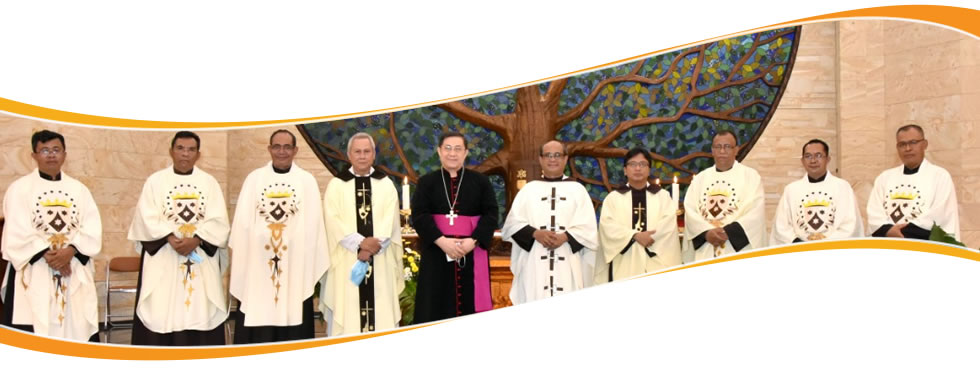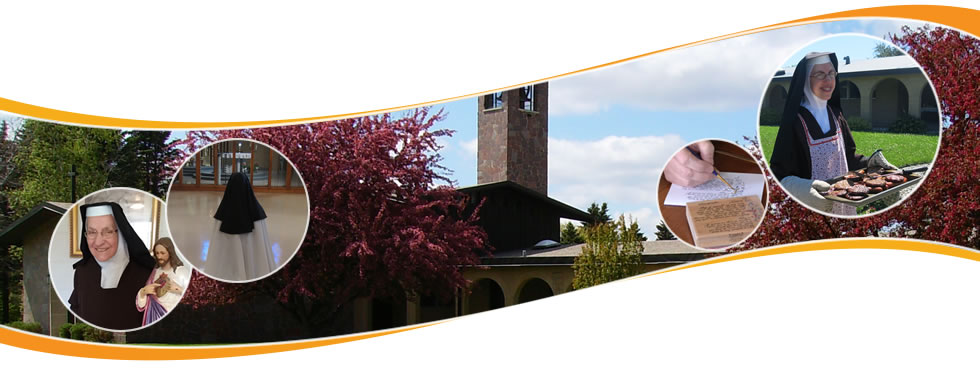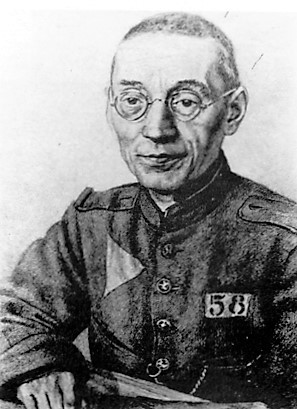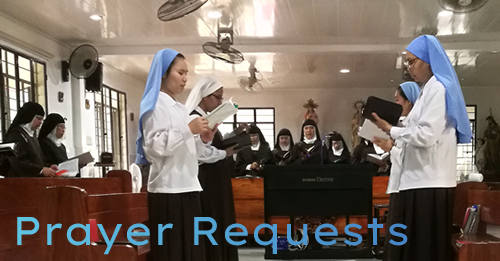Lessons from Titus Brandsma’s Life:
-
Opening lines of the poem he composed in his prison cell at Scheveningen explains the source of his inner strength: O Jesus, when I see you, I know again that I love you and that also your heart loves me ...
-
The experience of those with him at Dachau was that Brandsma’s serene inner peace came from a deep source: Your nearness makes all things well within me – enabling him to be so serene in the midst of so much activity and so many concerns.
-
Brandsma taught that our orientation towards God comes from within ourselves: The indwelling and inworking of God must not only be the object of intuition but also manifest themselves in our life, come to expression in our words and deeds, and radiate from our whole being and behavior.
-
In his 1932 Foundation Day Rector’s speech at the University of Nijmegen, Brandsma said: The idea of God is not immutable like rock but manifests itself in our lives in ever-shifting images which do not mean an essential change but place our idea of God in a different light. Titus calls for great openness to this variability of the idea of God. We must seek the Eternal One in time.
-
God is the deepest ground of our being
… a person notices that he/she is being moved and shaped by forces that come from the core of his/her being;
… to open oneself up to the inner world is to experience it as mystery. It is not from oneself … it is given to us.
God’s life in us is dynamic – continually coming to power in us: God is an inner power who impacts us in a liberating and clarifying way and causes us to look at the world differently.
This sense of God in/with him enabled Brandsma to be at home anywhere, whether in the midst of people or in the silence of his cell.
-
Brandsma taught that God works in humans in such a hidden way that all that is human remains and is not destroyed and that in the inner life of every human being there are moments of waiting and receiving – alongside a time for decision, action and self-giving.
-
Real life is shaped and led by what we can understand and is rational but also by the accidental.
-
Brandsma taught: Kneel before the image of God in your brother.
-
Brandsma’s respect for people arises from the fact that they are connected with each other in and through God. This respect for others induces a person to give his/her fellow humans the space in which they can be themselves.
-
-
On June 16 1942, Brandsma was dispatched to Dachau, where he was stripped of all dignity, known only as number 30492.
-
He conducted himself as if he lived in freedom. His inner silence was something no one could take from him.
-
Terrible indignities suffered at Dachau. From this time on, Titus died continually: he let go of what he expected from this human existence, and abandoned himself to what became possible in the eyes of God. His deepest base was the certainty of his being beloved … O Jesus, when I look on you My love for you becomes more true. And yours, I know, will never end: You see me as a special friend.
-
Raphael repeatedly mentions the serenity and balance which Brandsma displayed.
-
Brandsma remained totally serene … he displayed the mystic’s spirit of “disinterestedness”.
-
“The man who beat and kicked him could not touch his interior life”.
-
“The Capuchin priest Othmarus comments: An eternal smile full of patience and inner serenity, a smile of mystical resignation in the all suffering he had to bear, marked Titus. He had been maltreated so badly that his teeth literally hung loose in his mouth. He repaid all that with the prayer of Christ: ‘Father, forgive them’. Neither I nor anyone else ever heard him complain. He was a saint.
-
-
“In Scheveningen and Amersfoort he lived and spoke from the riches of his knowledge and experience, as that became evident from his interrogation, his defence, his speech about Geert Grote. In Kleve and Dachau he realized that he had been abandoned by the authorities. This realization shocked him deeply. After a severe inner conflict he surrendered. He no longer expected a rescue. The only thing that was strongly alive in him was the realization that he was in God’s hands and that his dignity was ‘inviolable’”.
-
His reflection in Scheveningen, I know that You love me, sustained him.
-
On 26 July 1942, Brandsma was administered a fatal injection and died.

































